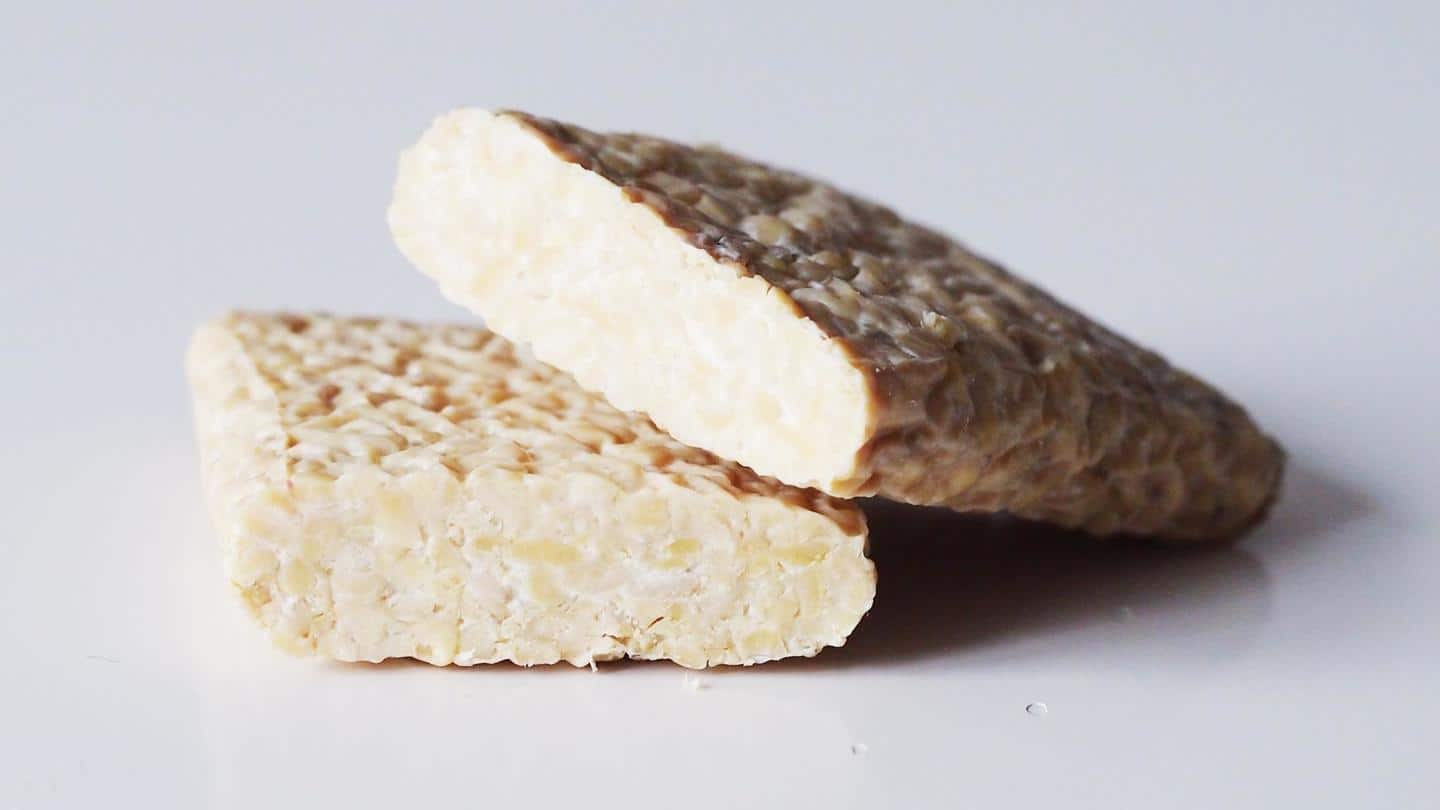
#HealthBytes: Here's why you should include tempeh in your diet
What's the story
Tempeh is a traditional Indonesian food that is made from fermented soybeans. It is believed to be a complete source of protein as it contains all nine of the essential amino acids.
It has a dry and chewy texture with a slightly nutty taste and can be either cooked, roasted, or baked into a dish.
Read on to know about tempeh's health benefits.
Prebiotics
Contains prebiotics that promote the growth of healthy gut bacteria
Tempeh is made by fermenting soybeans with a type of mold called rhizopus and is rich in prebiotics.
Studies suggest that prebiotics aid in the formation of short-chain fatty acids in the colon like butyrate that is the source of energy for the cells in the colon.
This thus helps in maintaining a good gut environment and preventing diseases associated with indigestion, inflammation, etc.
Weight loss
Increases the feeling of fullness and aids in weight loss
A protein-rich diet stimulates thermogenesis, leading to increased metabolism and more calories being burnt after each meal.
Tempeh is high in protein with one cup providing about 31gm protein.
A study conducted on obese men where they were given soy-based or animal-based proteins showed soy protein is as effective as meat protein. It was concluded that both groups lost weight, irrespective of protein source.
Cholesterol
Contains isoflavones that help in lowering cholesterol
While tempeh can be made from other beans, it is typically made from soybeans, which contain isoflavones that help in reducing cholesterol levels.
Studies comparing the effects of soybeans and animal protein on human cholesterol levels point that consuming soy protein led to a decrease in "bad" LDL cholesterol by 5.7% and total cholesterol by 4.4%. Triglycerides also significantly came down by 13.3%
Oxidative stress
Decreases the oxidative stress in the body
Antioxidants neutralize the free radicals in the body that can lead to chronic ailments including diabetes, heart diseases, and cancer.
Studies suggest that soy isoflavones exhibit antioxidant properties that can help reduce the markers of oxidative stress.
Studies have also linked tempeh to have higher antioxidant activity in comparison to other soy products, making it a better pick among soy products by itself.